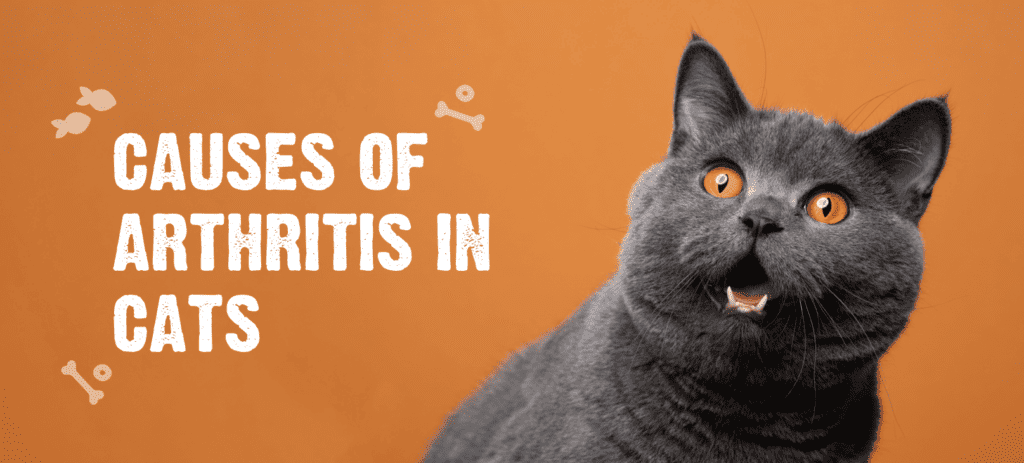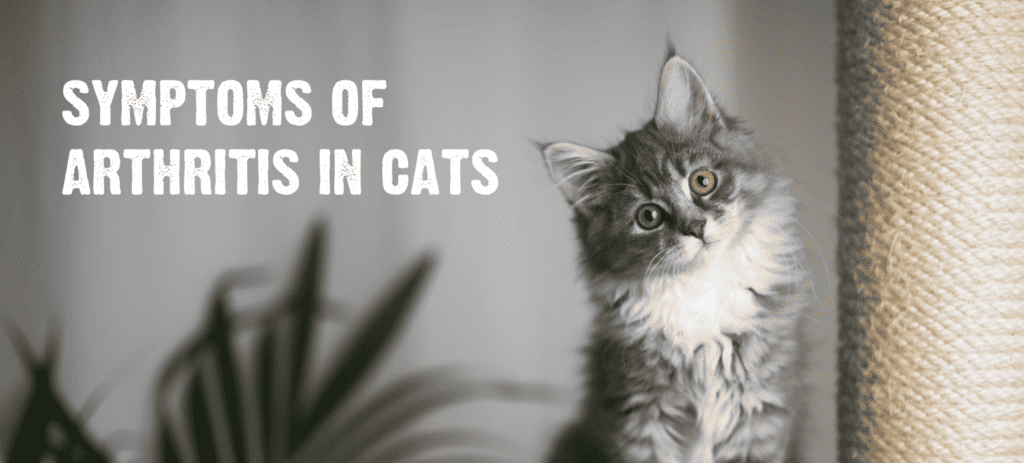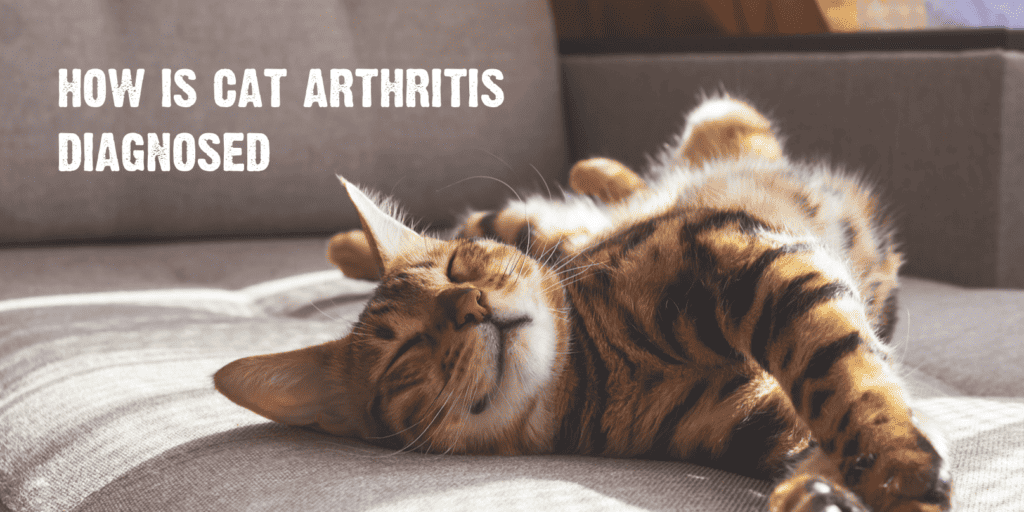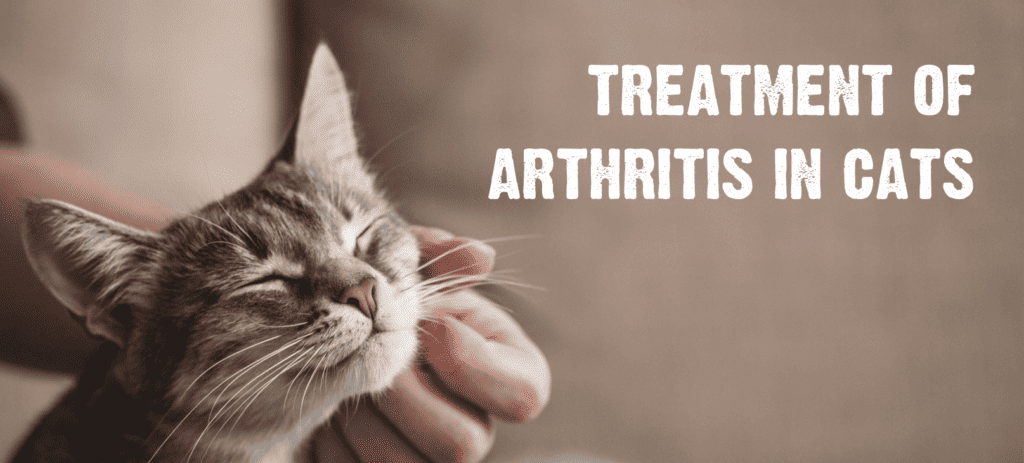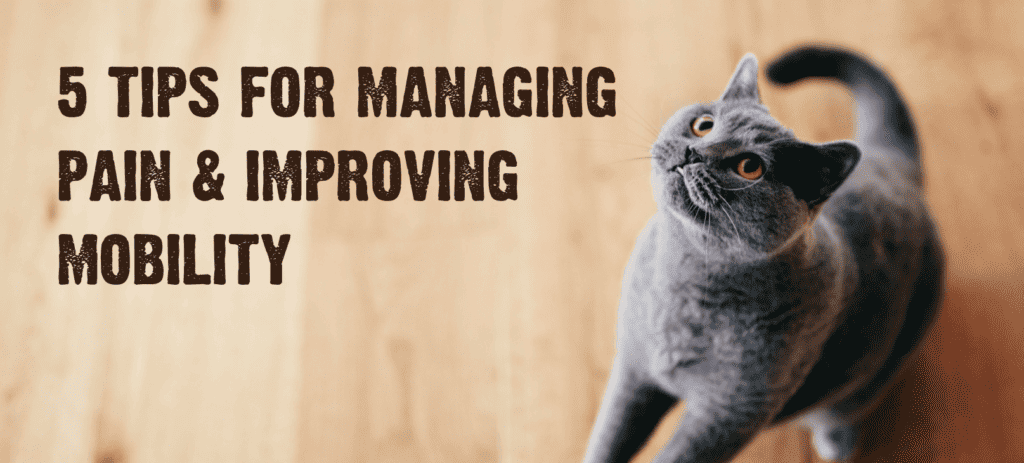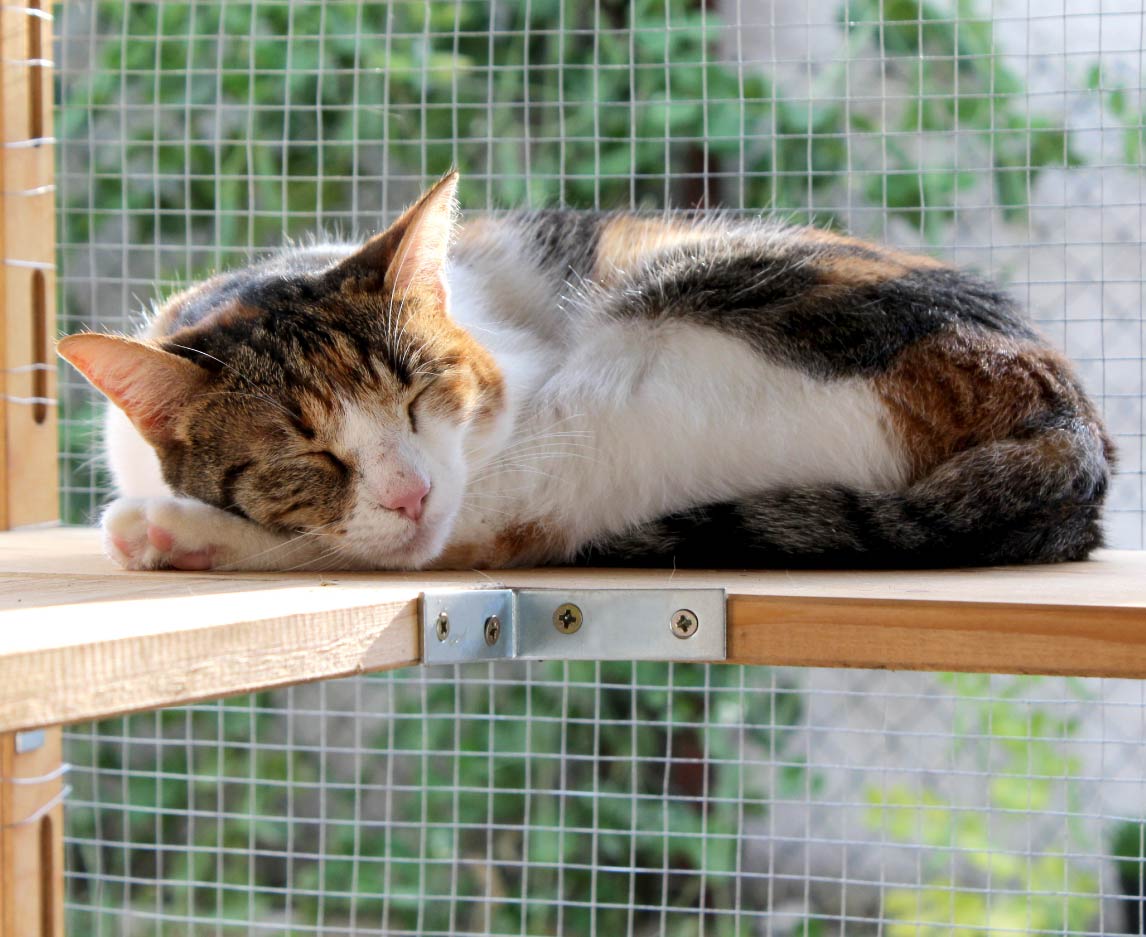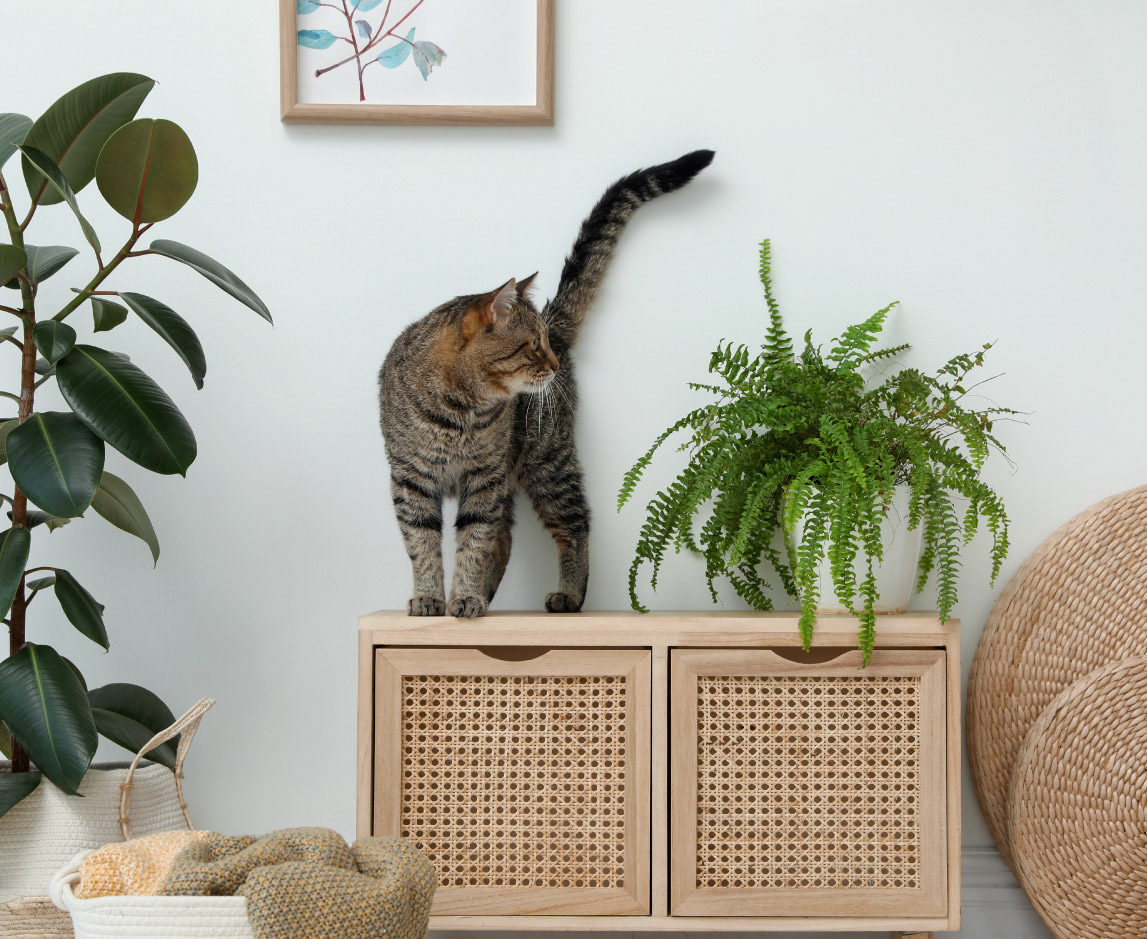Pain, stiffness, swelling — you may be familiar with these symptoms of joint issues yourself. Unfortunately, as your cat ages, they are likely to experience them, too. A stiff gait and a tougher time getting around are typical signs of this degenerative condition in an aging feline.
With regular use, bones and joints rub against each other, deteriorating cartilage that acts as protective cushioning. Certain conditions, like the barometric pressure drop on cold rainy days, can trigger an especially tender arthritis flare up.
As a pet owner, it’s important for you to know that there are ways to make your cat comfortable even when dealing with a painful diagnosis. (Hint: Some RAWZ recipes may help!)
What is cat arthritis?
Arthritis in cats, like in other animals and humans, occurs when tissue in the joints — most commonly knees, ankles and elbows — breaks down. Wear and tear can result from daily activities, excess force or abnormal shape of the bone. You may hear the term “osteoarthritis” used when joint inflammation becomes chronic.
Veterinarians have widely acknowledged that arthritis is underdiagnosed in cats. But in recent years, that awareness has led to better patient care. Experts at the American College of Veterinary Surgeons say part of the problem is that signs of arthritis in cats are less obvious than in dogs. The fierce independence of felines also makes it difficult to know when health problems have presented.
Dr. Michael Jaffee, an associate professor and service chief of small animal surgery at Mississippi State University College of Veterinary Medicine, explains that it’s largely due to cats’ abilities to mask injury and discomfort.
For example, while limping and stiffness are typical signs of the disease in dogs, those markers are considerably less common in cats unless the arthritis is more advanced or there is an acute flare up of pain. Behavioral changes are much more common, according to Jaffee; decreased activity and reluctance to jump, play and chase toys are some possible indicators.
Causes of Arthritis in Cats
You’ve done everything you can to provide a healthy lifestyle for your cat, but they’ve still been diagnosed with arthritis. So what caused it? Injury to a joint, gradual wear from jumping and running or a secondary consequence of the internal structure of a joint are the most common reasons, according to Dr. Christine Bellezza, a former consultant at the Cornell University College of Veterinary Medicine’s Feline Health Center.
The most common contributor is age. In a study where researchers analyzed X-rays of 100 middle-aged or elderly cats (10 years or older), it was discovered that very few had perfectly normal joints. In fact, 90% of participants aged at least 12 years showed evidence of arthritis.
Symptoms of Arthritis in Cats
Cats can show varying signs of arthritis. The most common include:
- Difficulty climbing or jumping – including into the litter box
- Trouble laying down or getting up
- Changes in gait
- Limping or stiffness
- Decreased activity level
- Inability to groom, leading to matted hair
- Desire to lay only in warm spots, like near vents and sunny windows
How is Cat Arthritis Diagnosed?
Veterinarians rely on a combination of physical examination to pinpoint pain along with pathology and imaging — commonly an X-ray — to look for worn bones and areas of inflammation.
Treatment of Arthritis in Cats
Your veterinarian will have several strategies to address your cat’s pain caused by arthritis. In most cases, palliative care is the norm, including non-steroidal anti-inflammatory drugs (NSAIDs), similar to the recommendation for adult humans with the same condition. Remember, animals cannot take medications intended for humans. They must come from a licensed veterinarian and be specifically formulated for cats.
In more severe cases, your pet might be a candidate for surgical procedures like bone fusion or joint replacement.
A natural way to help prevent arthritis in cats and ease symptoms is by being conscious of their diet. At RAWZ, we care about each ingredient that ends up in your pet’s bowl (and we’ve done the research to find the best!). Here are some foods known to decrease inflammation and possibly help with arthritic pain:
- New Zealand green mussels, featured in this shredded recipe along with chicken breast and pumpkin
- Fish and pumpkin, the co-stars of our Sa-Shi Bonito Tuna & Pumpkin cat food topper recipe (with savory broth)
- Coconut oil and shredded chicken breast in this simple shredded option
- Duck and chicken breast Aujou provides a dose of omega-3 fatty acids, which prevent inflammation while keeping your pet’s skin and coat healthy
5 Tips for Managing Arthritis Pain & Improving Mobility
Consider these top tips when it comes to treatment and prevention for arthritis in cats:
- Weight management
The more weight a cat carries, the more pressure there is on its joints, exacerbating any existing pain or irritation and threatening new damage. The only breed predisposed to degenerative joint disease is Maine Coon due to their naturally stocky bodies and susceptibility to hip dysplasia (misaligned bones in the hip), according to researchers at the Cornell University College of Veterinary Medicine.
- Comfortable environment
Cats are known to enjoy warm spots — nestling themselves in a blanket, patch of sun or near a heating vent. This is especially true when they are experiencing joint discomfort and searching for some relief.
A cat with arthritis pain will not want to jump, even if it’s up to the couch or a favorite chair to relax. Place pet stairs near pieces of furniture that your cat frequently uses. This eliminates the need for extra effort jumping up and down. Also consider a litter box that provides easier access with lower sides.
Many cats with arthritis or pain in the joints and hips have a difficult time squatting to urinate or have difficulty getting in and out of the litter box. Pet owners should consider buying a low sided litter pan or using pee pee pads to line the floors front of the litter box in case the pet does have an accident or tape up the pee pads against the back of the litter pan in case the kitty is standing and urinating against the back of the litter box.
- Veterinary treatment
Talk to your veterinarian first to figure out if your cat has arthritis, then determine how severe it might be. Pain medications, surgery or physical therapies could help.
- Supplements
Cats with certain health conditions or of a certain age can benefit from the addition of supplements to their diet. Make the best choice for your pet with the RAWZ supplement guide. Pet CBD oil is even an option for struggles with pain, anxiety and other ailments.
- Healthy lifestyle
RAWZ can help with this one! Our minimally processed pet food is a great option to keep your feline family members feeling their best. We use dehydrated chicken as our natural concentrated protein source, which has a higher protein efficiency ratio than rendered meals. Our process of cooking at lower temperatures helps retain protein and amino acids, keeping the protein in a more natural state.
FAQs
Can I prevent my cat from developing arthritis?
The best way to prevent arthritis or any type of illness is to help your pet maintain a healthy lifestyle. And when it comes to healthy eating, it doesn’t have to be boring! Our Aujou pouches are made with fresh ingredients, like aku tuna and salmon, chicken breast and pumpkin and more.
At what age should I be on the lookout for arthritis in my cat?
Research has indicated that cats over age 10 have a higher chance of developing arthritis from wear and tear on joints. Fractures, dislocations and other joint injuries at any point in a cat’s life can lead to arthritis as well.
How common is arthritis in cats?
Studies have shown that arthritis in cats is extremely common, affecting about 45% of all cats and 90% of cats older than 12.
Are there rehabilitation exercises I can do to help my cat?
Talk to your veterinarian about the benefits of physical therapy and hydrotherapy (a less common form of treatment), used to rehabilitate injuries in a non-weight bearing environment. Mobility aids, like a pet wheelchair or life harness, could also be useful. Additionally, your vet may recommend an Assisi loop to help reduce pain and discomfort.
At RAWZ, we care about the well-being of all animals! Explore our many offerings for dogs and cats online, or find your nearest retailer.



